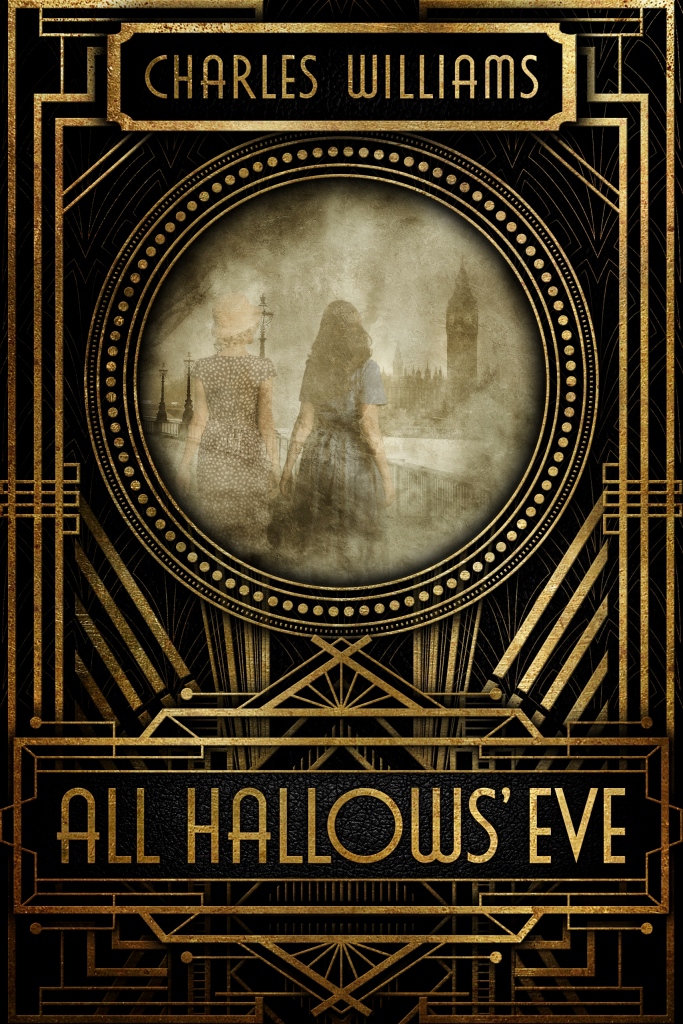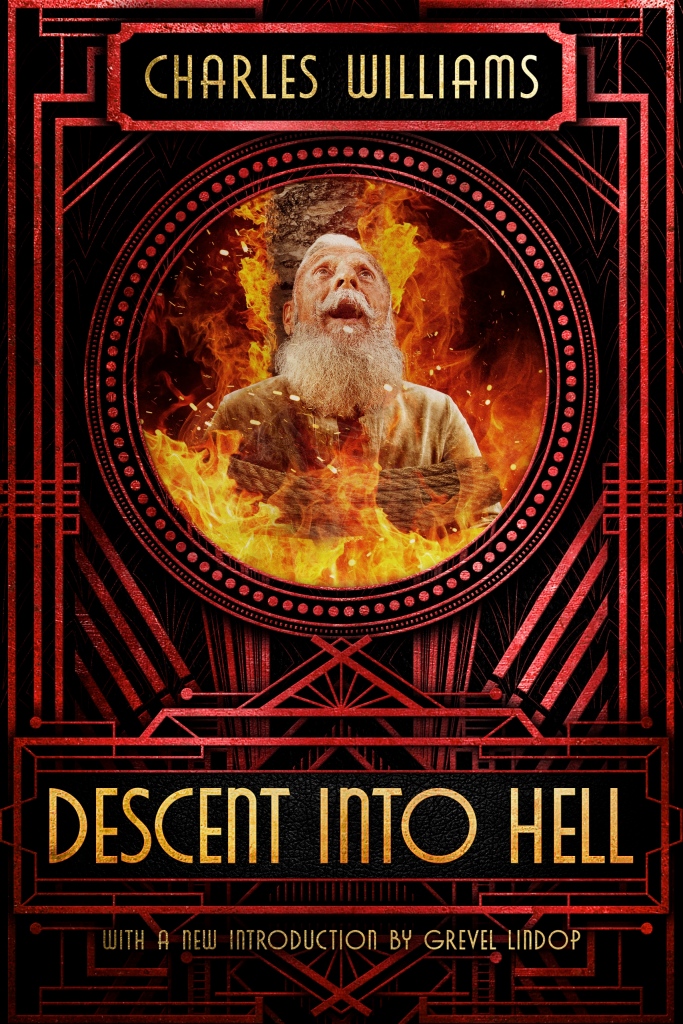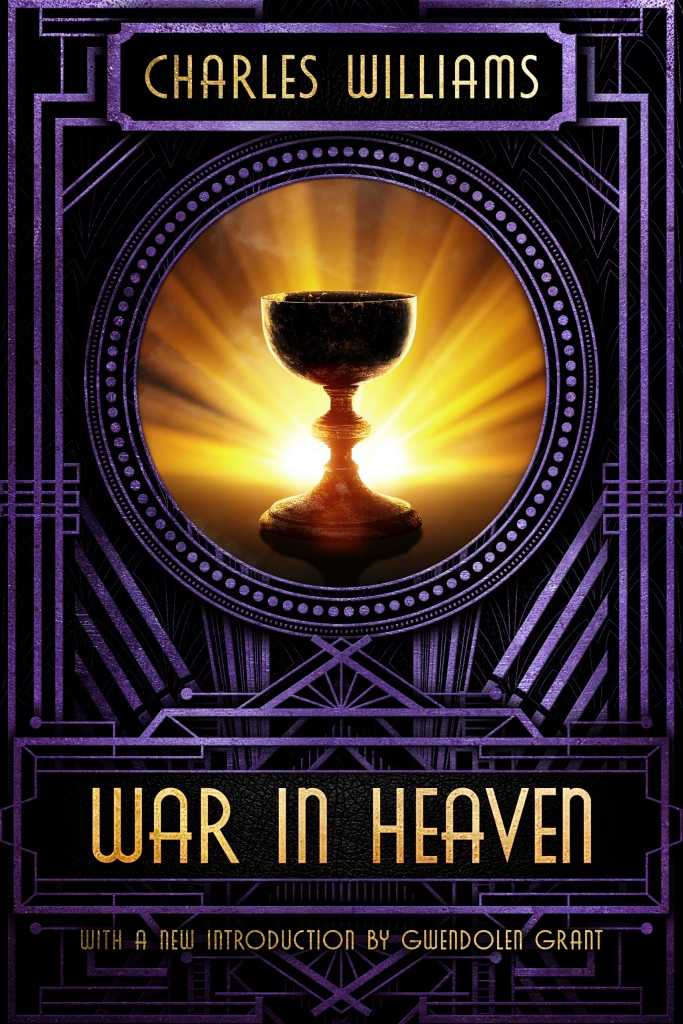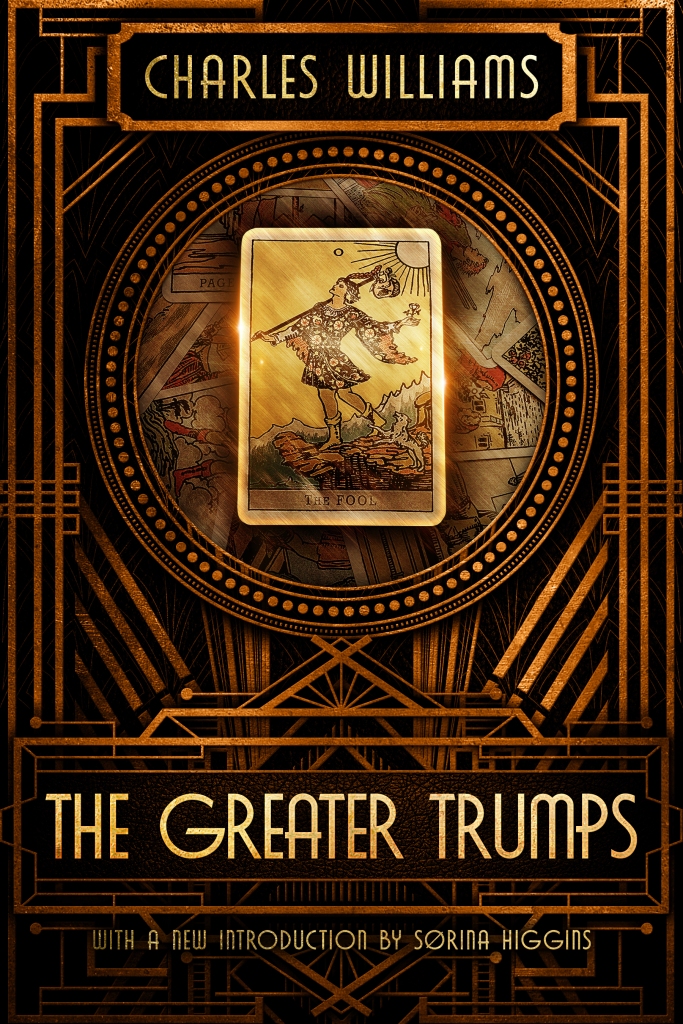Guest post by John Mabry: The Rev. Dr. John Mabry is the owner of the Apocryphile Press, a small publishing company specializing in edgy spirituality. A retired United Church of Christ pastor, he currently serves as the director of the interfaith spiritual direction certificate program at the Chaplaincy Institute in Berkeley, California. He is the author of 35 books, ranging from theology, spirituality, and spiritual guidance to science fiction and fantasy. He lives in upstate New York with his wife and three dogs.
In high school, I was an evangelical preacher-boy absolutely besotted with C.S. Lewis. I knew Charles Williams had been a friend of Lewis’, so when I came across a couple of paperbacks of Williams’ novels in a Christian bookstore marked down to nearly nothing, I snatched them up.
And then I tried to read one of them. I really did try. I didn’t get past the first chapter. So they sat on my bookshelf, forlorn and unloved.
Later, while at California Baptist College, I took a class on Many Dimensions.
Mind. Blown.
I then started reading the other novels. While I loved all of them, it was All Hallows’ Eve that had the biggest impact. I call it “the shout that started the avalanche that brought me here.” In Williams’ writing, I discovered just how mystically anemic my Christianity was. He showed me that the physical and spiritual worlds interpenetrated, that they informed one another, that they were in community (and communion) with each other. It was a vision that, once perceived, I desperately wanted for myself.
The Truth of co-inherence has completely remade my world view and has substantially impacted my pastoral ministry, my spiritual direction practice, and my writing. I began to teach co-inherence in my sermons, and I started to practice exchange with my friends and spiritual direction clients. I also started writing supernatural thrillers of my own—probably the closest to Williams’ own vision being the Berkeley Blackfriars series, but almost all of my novels have mysticism at their core.
Every time I visit England, I go to Oxford to visit Williams’ grave and lunch at the Eagle and Child. And so great has my debt to him been, that I made a promise at his graveside to get as many of his books back into print as I can.
I run a small publishing company called The Apocryphile Press where I publish…well, anything I fancy, really. (It is nice to be one’s own boss.) With a backlist of nearly 300 titles and more than 60 authors from around the world, we specialize in edgy spirituality that most religious publishers wouldn’t touch with a ten-foot pole. And one of our specialties is Williams and Williams studies.
We were so proud to produce Robert Peirano’s Under the Mercy: Charles Williams and the Holy Grail and Sørina’s own book on The Inklings and King Arthur, as well as her beautifully curated The Chapel of the Thorn, a “lost” Williams play now available to the world.
But I am most proud that we’ve been able to get so many of Williams’ non-fiction back into print through our Inklings Heritage Series, most notably such important works as The Figure of Beatrice, He Came Down from Heaven and the Forgiveness of Sins, The Image of the City, Outlines of Romantic Theology, and Witchcraft. Then there is the poetry, including Divorce, Windows of Night, Poems of Conformity, and Taliessin Through Logres and The Region of the Summer Stars. We have even brought out such obscurities as Henry VII, The Myth of Shakespeare, Poetry at Present, Stories of Great Names, Dean of Flecker Close, and Queen Elizabeth. Not that these are in high demand, but…there is a debt to be repaid.
I have only been sad not to be able to produce any editions of the novels. While the books are in the public domain in most of the world, they are still under copyright in the US thanks to the Sonny Bono Act of 1976. Regent College and Wipf & Stock publish the paperbacks in the US. We missed the boat on ebooks simply by not thinking of licensing them in time—Open Road beat us to that with their excellent ebook editions. But I saw a new opportunity with audiobooks, and I am very happy to report—crow?—that three of them are available now.
Featuring the talents of British narrator David Pickering, these editions are an absolute joy to listen to. And while Williams can be famously daunting in print, Pickering brings the text to life in surprising, delightful ways. They also feature excellent new introductions by Williams scholars Edward Gauntlett (All Hallows’ Eve), Grevel Lindop (Descent into Hell and The Place of the Lion), and Gwendolen Grant (War in Heaven).
I am happy to report that we’ve also been granted permission to produce new, beautiful hardcover editions of all seven novels—again, each with new introductions. Three of them are available now, with The Place of the Lion due to drop any day. These are not easy to find on Amazon due to the glut of illegal editions (you would not believe how difficult these are to weed out; it’s like playing whack-a-mole), but you can find them here:
Hardcover editions of the other novels are still underway, but I am pleased to reveal the new covers to you. The new introductions will be by Grevel Lindop (Many Dimensions), Aren Roukema (Shadows of Ecstasy), and Sørina Higgins (The Greater Trumps). We’re working on getting lower-cost case laminate (library editions) out as well.
I want to thank Sørina for asking me to do this guest blog, and you, dear reader, for reading it! I’m grateful for the opportunity to let you know about the exciting editions we’re producing at Apocryphile. And if you have done any Williams scholarship of your own…let us have a look at your manuscript, won’t you? We’d love to consider it for publication.
John R. Mabry
Publisher








Delighted to discover the work of John Mabry – thank you for hosting this guest post, Sørina.
LikeLiked by 1 person
It is indeed interesting to read this background story!
Is there any chance of a revised and enlarged edition of Stories of Great Names which includes Asoka and Akbar as well as Voltaire and John Wesley?
LikeLike
David, what an interesting idea! Where would I find the additional texts?
LikeLiked by 1 person
Who did the introduction to Descent into Hell? Did you manage to correct the typo in Peter’s conversation with Pauline about bearing one another’s burdens, ‘But if you will be a part of the rest of us”–not ‘the best of us” as it is in the editions after the first?
And I second David Llewellyn Dodds for a revised and enlarged edition of Stories of Great Names.
LikeLike
David, what an interesting idea! Where would I find the additional texts?
LikeLike
That’s a good question: e.g., what libraries would have a copy that you can work from? As one of several possible steps toward an answer, this is the only one of eight entries I find which lists a (reprint) copy of that edition – whether it will accurately show libraries which indeed have that version, I do not know:
https://www.worldcat.org/title/stories-of-great-names/oclc/860839323?referer=br&ht=edition
I can imagine at least some of the British Legal Deposit Libraries would have a copy – whether someone could call such a copy up and, say, simply photograph the relevant pages, I do not know, either.
More positively, I see that the “catalogue of the books in the collection of the Charles Williams Society, held at the Centre for Medieval and Renaissance Studies, Oxford” on the Society’s website lists a copy: “Stories of Great Names, with notes by R. D. Binfield. London: Oxford University Press, Humphrey Milford, Indian Branch, 1937, reprint 1944. Hb. Gift of R. D. Binfield.” – using Lois Glenn’s classification: I.A.vi.6
Perhaps some old Society member in the UK like Edward Gauntlett or Grevel Lindop could most conveniently consult – and photograph – the relevant parts of this copy, or otherwise arrange for that.
LikeLike
Oops! Also put this in the wrong place!
LikeLike
Sorry, answered that in the wrong place. Snakestooth, thanks so much for this question. We did NOT have that correction. I have corrected it now, and will soon be uploading the correction so that it will be reflected in the new books that are ordered. Thank you!
LikeLike
Oh, and Grevel Lindop did the introduction for DIH.
LikeLiked by 1 person
snakestooth raises an interesting bibliographical-editorial ‘matter’. Back in the day, when I asked Michael R. Phillips what he used for copy texts for his full reprints of George MacDonald novels, he said (in effect) any copies he could obtain. And J. Joseph Flynn’s reissues of MacDonald’s books of sermons were always a photographic “facsimile reprint” (the one I just checked, of Unspoken Sermons Series One, specifies “a facsimile reprint of the first edition”) . I think that was true of the Eerdmans Williams reprints, too – though, again, the question always was, which editions were the ‘photolithographically’ reprinting (which I do not think was always specified)?
Does Apochryphile have a textual-editorial policy in this ‘matter’? Are reprints photographically reprinted, or reset, or (so to call it) scan-transcribed? The latter two options would (I take it – correct me if I am wrong!) permit an easier correction of any error, such as snakestooth notes, though I suppose a photo-reprint could incorporate such corrections by some sort of cutting and pasting, or foot- or end-noting.
LikeLike
Hi, David. We start with a digital text from wherever we can find it, too. These are often Optical Character Recognition scans, which means there are artifacts. We then have it carefully proofread. Grevel Lindop provided some corrections to errors in the Eerdman’s editions of a couple of the books. Then we re-typeset the book with an attractive design that is vaguely art deco to go along with the covers. We’ve taken a lot of care to make sure these editions are as fine as they can be. If you note any errors, please let us know, as we can correct future editions easily.
LikeLiked by 1 person
I’m happy to report that the audiobook of The Place of the Lion is now available! You can find it here: https://www.audible.com/pd/The-Place-of-the-Lion-Audiobook/B09XHRPB9P
LikeLiked by 1 person
There might be value in an omnium gatherum edition of CW writings that could give us, for example, his short story, his retelling of Browning’s The Ring and the Book, etc. I’m particularly interested in the latter because it would probably be a good intro to tackling that long poem, which I’ve wanted to do for a while. Perhaps there are some unpublished things too that could be included.
LikeLike
Apocryphile would indeed be eager to publish such a collection! Who would take on editing it?
LikeLike
I’ll chime in and say that I enjoyed his Story of the Aeneid – but that may be likely to be less “in high demand” than even other “obscurities”, though it has points of relevance to his use of the Aeneid in his Arthurian poetry…
LikeLike